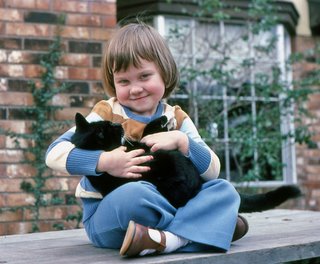
Is it possible that people have reached that point in human development that we have somehow applied our own social dynamics to those of animals? Or is it merely an evolutionary extension (pun definitely intended) of our dependence or adherence (following
Or perhaps, we condescendingly try to force upon animals a logical pattern of behavior akin to that of humans. I don’t really know for sure how zoologists think but in recent times, the various academic disciplines have crossed barriers in the effort to attain a more holistic view of life.
The socio-biologists, for instance, claim that humans are biological organisms. Others argue that “No, at the beginning of the day, we are an evolving animal species, but by the end of the day, we're something else again. We're human beings…. (T)he Yanomami Indians of South America is one more instance of that fierce philosophical fight over the nature of human nature. Are those head-hunting Yanomami warriors acting out a universal human urge to dominate or die? And are we doomed, if that's so, to tribalism, sexism, racism, ethnic cleansing and war without end?” <Christopher Lydon at www.wbur.org>
In a sense, the world has become less and less of a wild, unexplored and untamed world. Even society has become less and less exciting and less useful for so many people who have gone on to explore other worlds such as the virtual realm of the Internet and that of outer space. (Still for so many, TV remains the window to a visually-managed wilderness whose ways seem to awaken our own primal instincts.) Whereas before people went to Africa or the Amazon River to hunt wild game or explore nature, today the excitement dwells in the inner reaches of the human psyche or the human mind. In this still uncompleted chart, many spend money, time and effort to unravel the secrets that may one day bring the Utopian era of harmony, peace and understanding. But is that really possible on this Earth?
For now, we study animals and ourselves, propose hypotheses and theories, seek out social and political leaders and scour books and the Internet in search of conclusive answers. In search of the perfect knowledge that will set us finally free from the wildness within and around us. All because we have lost that perfect affinity we once had with one another and even with animals in a long lost place we call
[Top photo: My foster-sister, Jodi Hottel, at 4 and her pet cat, Blackie (from a Kodachrome slide taken in 1980, Texas); Photo above: At the butterfly farm in Club John Hay, Baguio City]



No comments:
Post a Comment